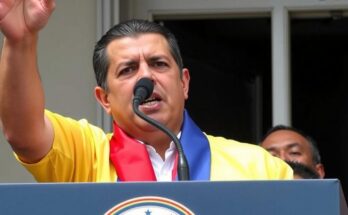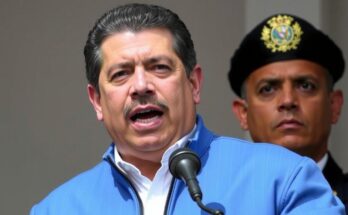TikTok defended its election integrity measures to EU officials after removing multiple networks attempting to disrupt Romania’s elections. Executives revealed dismantled groups supporting various candidates amid allegations of foreign influence, particularly regarding independent candidate Calin Georgescu. Lawmakers expressed discontent with TikTok’s responses, while analysts highlighted Georgescu’s significant social media presence. TikTok claimed to have removed impersonation accounts to safeguard electoral authenticity.
TikTok has defended its actions regarding its role in the electoral process in Romania during a recent session with European Union lawmakers. Executives from the platform reported on Tuesday that they have taken significant measures against attempts to influence the elections, highlighting their removal of various networks targeting Romanian voters. This response follows the considerable rise of independent candidate Calin Georgescu, who has faced allegations of electoral violations amid claims of Russian interference, subsequently becoming the frontrunner in the election.
During the session, TikTok executives, including Brie Pegum, the global head of product, disclosed the dismantling of two small networks that were active in Romania. One of these networks, which had approximately 1,781 followers, supported Georgescu, while the other favored different candidates. Concerns arose regarding the authenticity of Georgescu’s popularity, fueled by his sizable TikTok presence, which boasts over 5.8 million likes and 527,000 followers. The scrutiny intensified amidst EU officials’ suggestions that Georgescu may have received unfair advantages from the platform, calling into question the integrity of democratic processes in Romania, especially given the nation’s strategic position as a border state to Ukraine.
In light of these developments, Georgescu is set to compete against reformist candidate Elena Lasconi from the progressive Save Romania Union in an upcoming runoff election. TikTok’s chief lobbyist for the EU, Caroline Greer, and Pegum faced rigorous questioning from lawmakers about the platform’s practices during the election period and compliance with the EU’s Digital Services Act. Despite their attempts to reassure lawmakers through the declaration of a global playbook and local initiatives, including deploying Romanian-speaking content moderators, dissatisfaction lingered among EU representatives. For instance, Dutch Member of the European Parliament Dirk Gotink expressed, “The feeling here is that we are losing patience…and that we need more specific answers.”
Amidst the controversy, a report from the Bucharest-based Expert Forum think tank revealed that Georgescu’s TikTok content achieved an estimated 93 million views before the election, with a notable surge of 52 million views in the days leading up to the vote. On the night of the first-round election, an associated TikTok account garnered 1.7 million likes, which was subsequently removed after reports of impersonation emerged. TikTok claimed that over 150 accounts impersonating Georgescu were eliminated, along with more than 650 other impersonation accounts associated with different candidates.
The current state of electoral integrity within Romania is under scrutiny, particularly given the allegations of digital interference. With rising concerns regarding foreign influence on democratic processes, notably from entities associated with Russia, Romania’s elections are viewed as a critical focal point for establishing trust in European democratic systems. Calin Georgescu’s recent rise as an independent candidate has not only challenged traditional political norms but has also raised questions about the authenticity of his popularity on digital platforms. TikTok’s measures for safeguarding election integrity comprise a broader response to escalating tensions over misinformation in digital spaces, especially as platforms face increased regulatory pressures from the European Union. Measures taken include deploying local resources to monitor content and the removal of fraudulent accounts that threaten electoral authenticity. The platform’s activities in Romania provide insight into the overarching challenges faced by social media in a global context to maintain credibility and trust amidst growing scrutiny. The European Union’s Digital Services Act aims to enhance user safety and protect democratic processes by imposing stricter standards for platforms operating within its jurisdiction. As TikTok navigates these efforts, the situation in Romania serves as a case study for the implications of digital media on political landscapes and election integrity.
In conclusion, TikTok’s defense of its actions during the Romanian elections underscores the complexities of managing platform integrity in the face of external pressures and allegations of manipulation. While the company’s proactive measures to dismantle networks attempting to interfere in the electoral process indicate a commitment to upholding democratic values, skepticism remains regarding the efficacy and execution of their policies. As electoral processes evolve in the digital age, the scrutiny of social media companies will likely persist, forcing them to adapt continually to ensure transparency and trustworthiness in their operations.
Original Source: www.newsweek.com




